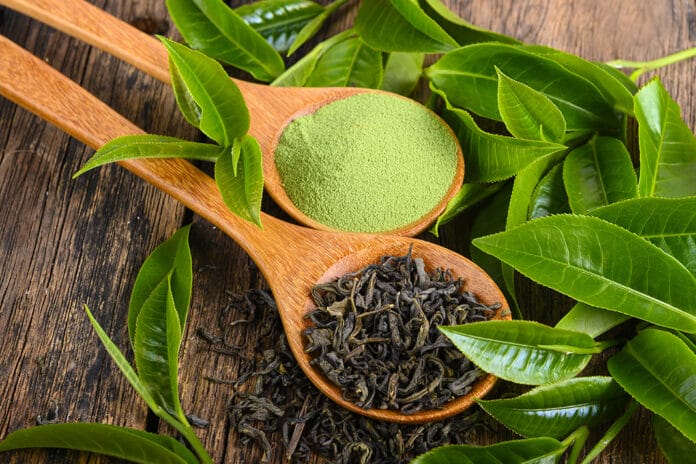It’s no secret that the number of people that seek out healthier options to increase the quality of their everyday lives is growing. Some choose to take the stairs instead of using an elevator. Some try to eat more natural foods.
How do we approach herbal dental care with our patients if they should ask for our advice?
We have previously discussed research into the potential benefits of herbal mouthwashes that called for a closer look at which particular herbs offer the healthiest and most effective treatments for common dental complaints.
Camellia Sinensis Mouthwashes in Oral Care: A Systematic Review is perhaps the next step in the process. The study specifically looks at green tea variants and their effects on oral problems such as inflammation, infection, plaque accumulation, and pain.
As it turns out, green tea may be a good suggestion for patients who are seeking healthier alternatives to maintain their smiles.
Camellia Sinensis
Camellia Sinensis is a general scientific for a common tea plant. Green tea was specifically studied here due to its already proven natural talent for reducing inflammation in patients with painful inflammatory diseases, such as arthritis.
Green tea studies suggest that the polyphenols that occur naturally in the plant may even have anti-cancer properties and decrease a person’s chance at neurodegenerative diseases. Many studies suggest the existence of antimicrobial compounds that will decrease a person’s chance of infection.
Common sense says that all of these progressive benefits of green tea would positively affect the microbiome that exists in the mouth.
Effects on Common Problems
The antifungal efficacy of green tea variants has already been established, so a suggestion for green tea usage during an outbreak of intraoral Candida to help combat the fungus’s growth is already known. But how does the tea affect inflammation and other common problems?
Anti-septic, Anti-inflammation, and Pain Relieving Properties
Many studies support the antimicrobial benefits of using common commercial green tea in a daily gargling solution and general rinse. They compare green tea usage to the same dosage and method as chlorhexidine, or CHX, which is a fairly common antiseptic in many types of mouthwash.
Though the chemical compounds in CHX proved to be a little more effective than green tea against most forms of infection, there were side effects that did not exist in the herbal rinses. Patients did take fewer opioid pain medications after dental surgeries and invasive procedures when implementing the green tea rinse when compared directly to the reported medication usage of CHX patients.
Green tea, as it turns out, is an effective antiseptic in decreasing the inflammation and pain that is caused by infection but is most helpful as a daily preventative against bacterial invasion. CHX is more effective during a more precarious situation, such as with oral surgery, and perhaps shouldn’t be substituted completely with tea rinses to be safe.
General Prevention and Hygiene
Green tea rinses were compared to CHX mouthwashes in their effects on daily hygiene problems, such as plaque. When it came to daily hygiene and prolonged usage of rinses, green tea was just as effective as CHX in terms of reducing both plaque and gingivitis.
Green tea was even more efficient when compared to the use of white teas in a study with the same standards. It elevates the PH of saliva much more than any of the alternatives and decreases the risk of enamel demineralization in general.
Green tea was also more effective during orthodontic treatments than the harsher chemical mixtures, as in the CHX based rinses.
Patients in several studies who used a green tea combination as a mouthwash after third-molar extractions reported less pain and had fewer instances of after-surgery infection. Almost all studies collected for review by the researchers have come to the conclusion that green tea is a useful tool to increase a person’s chances of deflecting the pain and problems that arise from damage and infection.
Green tea usage probably shouldn’t be suggested over other rinses voluntarily unless a patient specifically asks. Still, a patient’s choice to use a natural and herbal green tea rinse over a harsher chemical is shown to be oaky for patients without serious dental problems.










